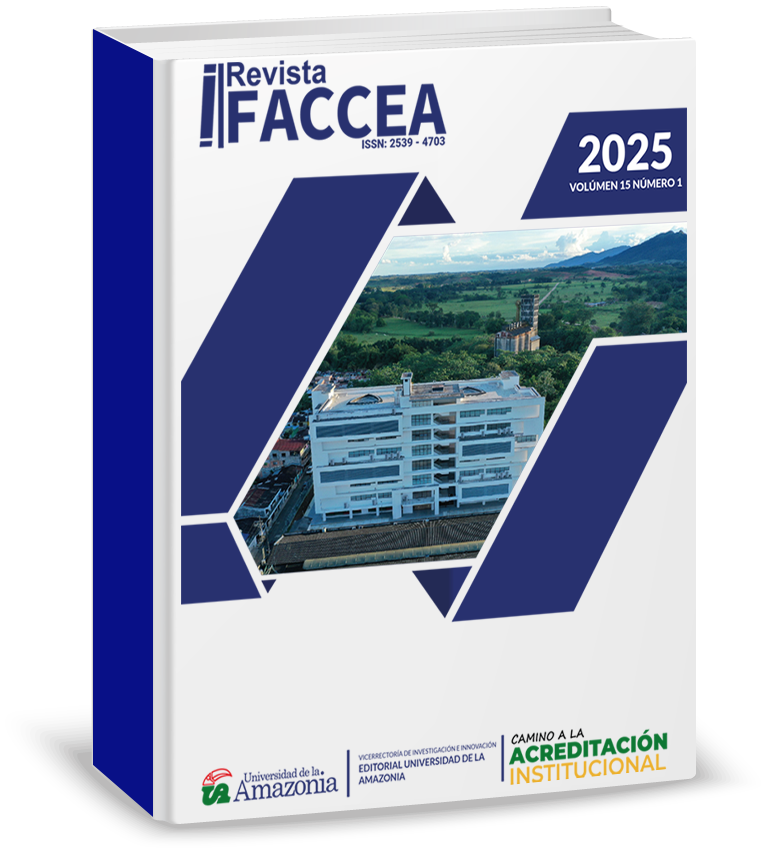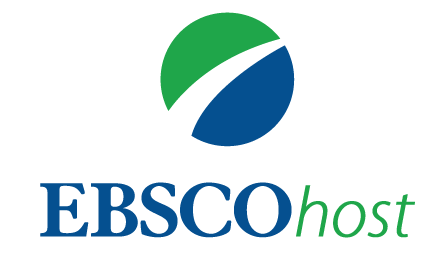NEIS: NEW SUSTAINABILITY REPORTS APPLICABLE TO COMPANIES INTHE EU FROM 2024
DOI:
https://doi.org/10.47847/faccea.v15n1a5Keywords:
Environment, Governance, Organizational reports, Risks, SustainabilityAbstract
The article presents an introductory analysis of the European Sustainability Reporting Standards (ESRS), which will come into force in the European Union for financial statements from 2024 onwards. The ESRS are characterized by their double materiality, scope and information required compared to the International Financial Reporting Standards for Sustainability (IFRS S).
The study is of a qualitative, theoretical, documentary and explanatory nature. It identifies *guidelines, particularly ESRS 1 "General Requirements", which are aspects to be disclosed on impacts, risks and opportunities related to environmental, social and governance issues.
The ESRS represent a significant step forward in sustainability reporting in companies; As a cross-cutting and cross-sectoral standard, the elements derived from it will be applicable and a guide to interpretation for the other standards issued. Its implementation will allow investors and other stakeholders to make more informed decisions about the companies in which they invest.
Downloads
References
Aigneren, M. (2009). Análisis de contenido. Una introducción. La Sociología En Sus Escenarios, (3). Recuperado a partir de https://revistas.udea.edu.co/index.php/ceo/article/view/1550
Bedoya Parra, L. A., & Mejía Soto, E. (2023). Qué enseña a la sustentabilidad la propuesta "Contra la sostenibilidad" de Andreu Escrivá. Revista FACCEA, 13 (2), 91-107. https://editorial.uniamazonia.edu.co/index.php/faccea/article/view/598/615
Bedoya Parra, L. A., Montilla Galvis, O. d. J., & Mejía Soto, E. (2023). Sustentabilidad: una visión que supera la sostenibilidad. Revista Facultad de Ciencias Económicas, Administrativas y Contables-Universidad Libre, 13, 105-131. https://repository.unilibre.edu.co/bitstream/handle/10901/27894/REVISTA%20FACULTAD%20CEAC%20VOL%2013%20V2.pdf?sequence=3&isAllowed=y
Chaves, O., Chyrikins, H., Dealecsandris, R., Pahlen Acuña, R., & Viegas, J. C. (2006). Teoría Contable. Ediciones MACCHI.
Comisión Europea, C. (2019). El Pacto Verde Europeo. https://eur-lex.europa.eu/resource.html?uri=cellar:b828d165-1c22-11ea-8c1f-01aa75ed71a1.0004.02/DOC_1&format=PDF
Da Silva, E. M., Ramos, M. O., Alexander, A., & Jabbour, C. J. C. (2020). A systematic review of empirical and normative decision analysis of sustainability related supplier risk management. In Journal of Cleaner Production (Vol. 244, pp. 1–15). Elsevier Ltd. https://doi.org/10.1016/j.jclepro.2019.118808
European Sustainability Reporting Standards (ESRS)-Normas Europeas de Información sobre Sostenibilidad NEIS, (2023a). https://eur-lex.europa.eu/legal-content/ES/TXT/PDF/?uri=OJ:L_202302772
Reglamento Delegado (UE) 2023/2772 de la Comisión. Por el cual se compelta la Directiva 2013/UE del Parlamento Europeo y del Consejo en lo que respecta a las normas de presentación de información sobre sostenibilidad-Texto pertinente a efectos del EEE, (2023b). https://www.boe.es/doue/2023/2772/L00001-00284.pdf
Cooper, W., & Ijiri, Y. (2005). Diccionario Kohler para contadores. In
Escrivá, A. (2023). Contra la sostenibilidad. Por qué el desarrollo sostenible no salvará al mundo (y qué hacer al respecto). Arpa.
Fowler Newton, E. (2007). Cuestiones contable fundamentales (4 ed.). La ley.
Fowler Newton, E. (2008). Diccionario de contabilidad y auditoría. In
Georgescu-Roegen, N. (1996 [1971]). La ley de la entropía y el proceso económico Fundación Argentaria.
GRI, G. R. I. (2023). Timeline of GRI´s history. GRI. https://www.globalreporting.org/about-gri/mission-history/
GSSB, G. S. S. B. (2023). Estándares GRI Consolidados. GSSB.
IASB, I. A. S. B. (2018a). Marco conceptual de la información financiera In IFRSF (Ed.), International Financial Reporting Standards
IASB, I. A. S. B. (2018b). Marco Conceptual para la Información Financiera. In I. A. S. B. IASB (Ed.), Normas Internacionales de Información Financiera NIIF. IFRSF.
IIRC, I. I. R. C. (2014). Marco internacional del reporte integrado. IIRC.
ISSB, I. S. S. B. (2023a). Climate-related Disclosures IFRS S2. In. London: ISSB.
ISSB, I. S. S. B. (2023b). General Requirements for Disclosure of Sustainability-related Financial Information IFRS S1. In. London: ISSB.
Montilla Galvis, O., Gallego Jiménez, A. F., Flórez Ríos, Á. M., Rendón Álvarez, B., García Montaño, C. A., Montes Salazar, C. A., Franco Campos, D. P., Mejía Soto, E., Mora Roa, G., Álvarez Álvarez, H., Suárez Pineda, J. A., Hernández Ramírez, L. J., Sánchez Vásquez, L. M., Bedoya Parra, L. A., Galindo Cardenas, S. G., Balanta Martínez, V. J., & Sánchez Mayorga, X. (2023). Contabilidad Multidimensional. Eco-contabilidad Fundamentos Teóricos. REDICEAC. https://rediceac.org/wp-content/uploads/2023/12/CMD-FINAL-W2023.pdf
Naciones Unidas, O. (1972). Declaración de Estocolmo sobre el medio ambiente humano.
Naciones Unidas, O. (2000). El Pacto Mundial de la ONU. Naciones Unidas. https://www.un.org/es/cr%C3%B3nica-onu/el-pacto-mundial-de-la-onu-la-b%C3%BAsqueda-de-soluciones-para-retos-globales
Naciones Unidas, O. (2011). Principios rectores sobre las empresas y los derechos humanos. https://www.ohchr.org/sites/default/files/documents/publications/guidingprinciplesbusinesshr_sp.pdf
OCDE, O. p. l. C. y. e. D. E. (2011). Líneas Directrices de la OCDE para Empresas Multinacionales. OCDE.
ONU, N. U. (2015). Transformar nuestro mundo: la Agenda 2030 para el desarrollo sostenible. Naciones Unidas. https://www.unfpa.org/sites/default/files/resource-pdf/Resolution_A_RES_70_1_SP.pdf
Directiva 2013/34/UE, sobre los estados financieros anuales, los estados financieros consolidados y otros informes afines de ciertos tipos de empresas, por la que se modifica la Directiva 2006/43/CE del Parlamento Europeo y del Consejo y se derogan las Directivas 78/660/CEE y 83/349/CEE del Consejo, (2013). https://www.boe.es/doue/2013/182/L00019-00076.pdf
Directiva (UE) 2022/2464 del Parlamento Europeo y del Consejo. por la que se modifican el Reglamento (UE) n.o 537/2014, la Directiva 2004/109/CE, la Directiva 2006/43/CE y la Directiva 2013/34/UE, por lo que respecta a la presentación de información sobre sostenibilidad por parte de las empresas, (2022). https://www.boe.es/doue/2022/322/L00015-00080.pdf
SASB. (2023). The evolution of SASB Standards. Sustainability Accounting Standards Board (SASB). https://sasb.org/
TCFD, G. d. t. s. d. f. r. c. e. c. (2017). Recomendaciones del grupo de trabajo sobre declaraciones financieras relacionadas con el clima. https://assets.bbhub.io/company/sites/60/2020/10/TCFD-2017-Final-Report-Spanish-Translation.pdf
Downloads
Published
Issue
Section
License
Copyright (c) 2025 Journal of the Faculty of Accounting, Economics and Administrative Sciences -FACCEA

This work is licensed under a Creative Commons Attribution-NonCommercial-ShareAlike 4.0 International License.



















